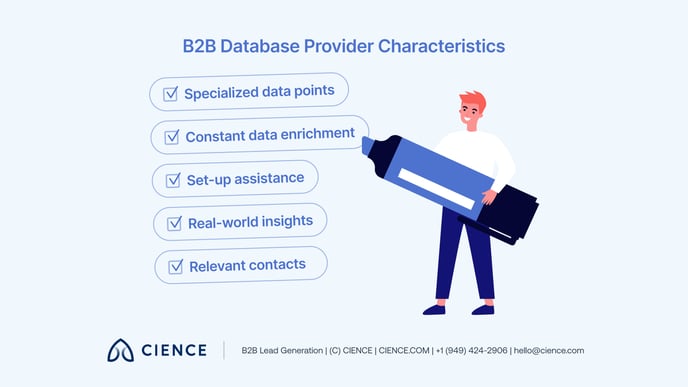Why Your Service Needs To Think About a Managed Database Provider
Why Your Service Needs To Think About a Managed Database Provider
Blog Article
Secret Attributes to Seek When Picking a Database Service Provider
Selecting a database supplier is an important decision that can dramatically impact your organization's operations and information management method. Amongst the essential features to think about are scalability alternatives, which ensure that your system can adjust to growing needs.
Scalability Options
When selecting a data source carrier, recognizing scalability alternatives is important to ensuring that the chosen solution can accommodate future development. Scalability describes the capacity of a data source system to expand its capability and efficiency in response to enhanced need. There are two main kinds of scalability: upright and horizontal.
Vertical scalability, or "scaling up," includes enhancing a single server's sources, such as CPU, RAM, or storage. This technique can be economical and straightforward for smaller applications however may reach a limit where even more upgrades are also expensive or impractical.
Horizontal scalability, or "scaling out," includes including more web servers to distribute the lots. This approach permits higher adaptability and can fit substantial increases in information quantity and user traffic (database provider). It is especially useful for cloud-based data source remedies that can dynamically assign resources based upon demand

Safety And Security Measures

When evaluating safety and security measures, consider the execution of file encryption protocols (database provider). Data-at-rest and data-in-transit file encryption are important to make certain that delicate info stays secured, also in the event of a safety and security violation. In addition, seek companies that offer solid authentication systems, such as multi-factor authentication (MFA), to even more enhance gain access to control
Normal protection audits and compliance with industry requirements, such as GDPR or HIPAA, are indicative of a provider's dedication to information security. In addition, inquire about their case action strategy; a durable strategy can minimize the impact of any kind of possible safety case.
Performance Metrics
Examining efficiency metrics is essential for organizations to make certain that their picked data source supplier meets functional demands. Key performance metrics consist of reaction throughput, time, and scalability, which jointly identify the performance of data source operations under varying lots.
Reaction time is crucial, as it shows exactly how promptly the data source can process inquiries and return results. Organizations ought to try to find metrics that suggest typical feedback times during optimal and off-peak hours. Throughput, frequently determined in purchases per second (TPS), gives understanding into the data source's capability to manage high volumes of demands without efficiency destruction.
Scalability analyzes the database's capacity to grow with the company's needs. A robust database supplier need to demonstrate upright and straight scaling capabilities, enabling seamless changes as needs change. Additionally, recognizing latency, especially in distributed systems, can assist organizations evaluate the responsiveness of the data source throughout various geographical places.
Client Support
Trusted consumer support is a foundation of efficient data source monitoring, supplying organizations with the assistance required to maximize the original source and deal with concerns efficiency. When choosing a data source supplier, assessing the degree of customer support they provide is important. A durable support group must include multiple networks of communication, such as phone, e-mail, and live chat, ensuring that customers can access aid whenever they need it.
In addition, responsive assistance teams that are available 24/7 greatly improve the dependability of the database service. Prompt reaction times and efficient resolution of concerns can considerably lower downtime and boost overall performance. It is also helpful to consider the accessibility of devoted support personnel, who can supply tailored aid based upon an organization's details needs.

Rates Framework
When thinking about a database supplier, the pricing framework is a pivotal aspect that can considerably affect a company's budget and overall approach. A transparent and flexible pricing design is important for lining up the data source sets you back with organization requirements - database provider. Organizations needs to evaluate whether the prices is based upon consumption, per individual, or a level price, as each model can produce various economic implications gradually
It is necessary to examine any kind of additional costs connected with the carrier's services, such as data storage charges, purchase prices, and support fees. Some providers may provide tiered rates, allowing scalability as the organization grows, while others might impose stringent limitations that might come to be pricey as information needs raise.
Moreover, organizations ought to think about the long-term worth of the data source remedy. While reduced first rates can be enticing, they might not make up future upgrades, upkeep costs, or combination expenses. Carrying out a detailed cost-benefit evaluation will certainly aid recognize one of the most appropriate prices structure that balances scalability, support, and efficiency, inevitably making sure that the chosen database service provider useful content aligns with the company's economic and operational purposes.
Final Thought
In verdict, selecting a database carrier requires mindful consideration of numerous crucial attributes. Evaluating efficiency metrics makes it possible for the identification of effective data sources, and obtainable consumer support improves the general customer experience.
Selecting a database carrier is an important decision that can considerably influence your company's data and operations monitoring approach.When selecting a database company, recognizing scalability alternatives is essential to making sure that the selected remedy can suit future development. When selecting a database service provider, assessing the level of client support they use is necessary.When taking into consideration a data source carrier, the prices framework is an essential aspect that can substantially affect a company's budget plan and general method. Carrying out a complete cost-benefit evaluation will help identify the most suitable rates framework that stabilizes support, efficiency, and scalability, ultimately ensuring that the picked data source company aligns with the company's operational and financial purposes.
Report this page